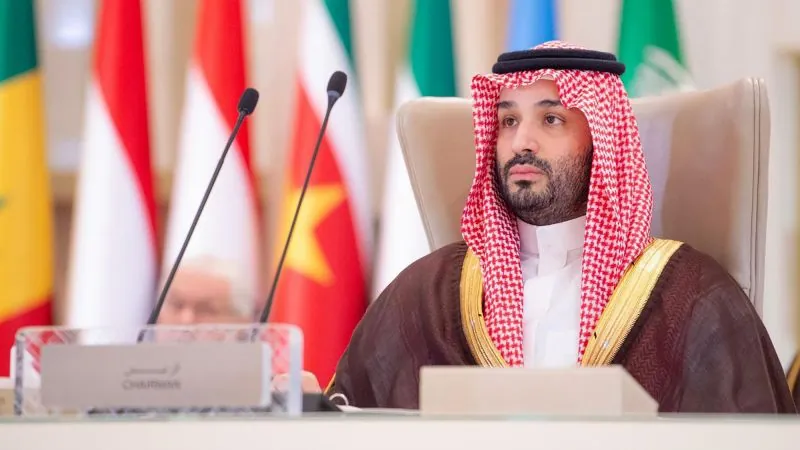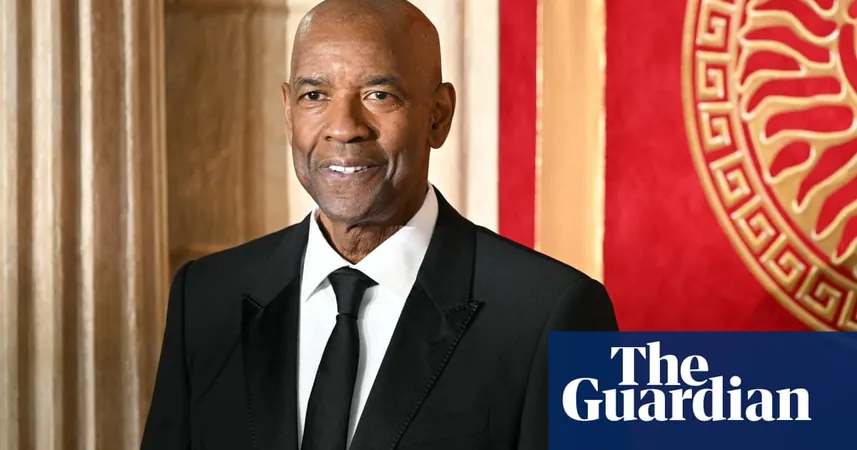
Saudi Crown Prince Mohammed bin Salman Accuses Israel of 'Collective Genocide' in Gaza
2024-11-12
Author: Lok
Introduction
In a significant and provocative remark, Saudi Arabia's Crown Prince Mohammed bin Salman (often referred to as MBS) has accused Israel of committing what he termed as "collective genocide" against the Palestinian people in Gaza. This statement came during a gathering of Islamic nation leaders held in Riyadh, marking one of MBS's most fervent criticisms of Israel since the start of the ongoing conflict last year.
Condemnation of Israeli Actions
The crown prince emphasized, "The Kingdom reiterates its condemnation and absolute refusal of the collective genocide committed by Israel against the brotherly Palestinian people." The conflict has had a devastating toll, with reports indicating that over 43,000 individuals have lost their lives in Gaza since Israel commenced its military operations against the enclave. Tragically, recent reports indicate that at least 30 people died in Gaza City and northern areas just this past Tuesday, with many still trapped beneath the rubble following airstrikes, as confirmed by Gaza's Civil Defense spokesperson, Mahmoud Basal.
Shift in Relations with Israel
Interestingly, just last year, Saudi Arabia was on the cusp of normalizing relations with Israel, a deal that has now reportedly been shelved until a viable solution for Palestinian statehood is found—something Israeli Prime Minister Benjamin Netanyahu has openly rejected.
Support for Iran
In a surprising twist in his stance, the crown prince also voiced support for Iran, contrasting sharply with his earlier remarks in 2017 when he equated Iranian Supreme Leader Ayatollah Ali Khamenei to Adolf Hitler. MBS called upon the international community to compel Israel to respect Iran's sovereignty and refrain from attacks on its territories. This call for solidarity comes amidst a backdrop of renewed relations between Riyadh and Tehran, which had been historically adversarial due to their competition for dominance in the region.
Meeting of Islamic Leaders
The meeting in Riyadh aimed to unify perspectives among Islamic nations and seek pressure on the global community to halt ongoing hostilities while pursuing a lasting peace solution. Notable attendees included Palestinian President Mahmoud Abbas, Lebanese caretaker Prime Minister Najib Mikati, Jordan's King Abdullah II, Egyptian President Abdel Fattah el-Sisi, as well as Turkish President Recep Tayyip Erdogan and Syrian President Bashar al-Assad.
Geopolitical Considerations
As regional dynamics shift, MBS appears to be consolidating alliances ahead of the incoming US administration under President-elect Donald Trump, who has yet to clarify his position on the Israel-Hamas conflict. During his campaign, Trump urged Israel to "finish what they started," which has raised questions about how his policies might differ from those of outgoing President Joe Biden.
Concerns about Iran
Concerns regarding Iran remain high on the agenda. Analysts suggest that Saudi Arabia is cautious about fully supporting a renewed "maximum pressure" campaign against Tehran, especially given the kingdom's apprehensions about its security in the wake of potential Iranian retaliation. MBS seems intent on navigating these treacherous waters by expanding ties with Iran while still underlining a need for a balanced approach towards Israel.
Potential Risks for Saudi Arabia
Political analysts warn of potential risks for Saudi Arabia if it pursues normalization of ties with Israel, as it could lead to domestic backlash and threaten its leadership role in the Arab and Islamic worlds. The message from the Saudi leadership is clear: they seek engagement, but it must come with substantial concessions, particularly regarding the Palestinian issue and Iran.
Conclusion
As tensions continue to escalate and the humanitarian crisis in Gaza deepens, the international community is left watching closely what steps Saudi Arabia will take next in this complex geopolitical chess game.



 Brasil (PT)
Brasil (PT)
 Canada (EN)
Canada (EN)
 Chile (ES)
Chile (ES)
 España (ES)
España (ES)
 France (FR)
France (FR)
 Hong Kong (EN)
Hong Kong (EN)
 Italia (IT)
Italia (IT)
 日本 (JA)
日本 (JA)
 Magyarország (HU)
Magyarország (HU)
 Norge (NO)
Norge (NO)
 Polska (PL)
Polska (PL)
 Schweiz (DE)
Schweiz (DE)
 Singapore (EN)
Singapore (EN)
 Sverige (SV)
Sverige (SV)
 Suomi (FI)
Suomi (FI)
 Türkiye (TR)
Türkiye (TR)